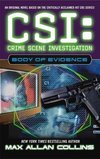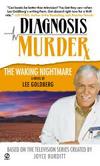Author James Reasoner is discussing TV tie-ins over on his blog.
I won’t pretend to be an expert on this particular sub-genre, but I’ve noticed something in the more recent ones I’ve read: there’s very little physical description of the regular characters and not much background about them, either.
Actually, he’s being modest. Among his many credits are a couple of WALKER: TEXAS RANGER tie-in novels. And, of course, his observation about character description and background details are dead-on. That said, I can’t remember Robert B. Parker spending any time describing Spenser, Susan or Hawk… nor does Elmore Leonard go into a lot of physical description. Many authors prefer to describe their characters through dialogue and action… to let them be defined by their personalities… and make due with describing only the most general physical features (Tall or short, thin or fat, etc.)
As far as background description goes in tie-ins, most authors are restricted in how far they can delve into the characters, unless they are merely restating backstory that’s already been revealed on the series. The authors are expressly forbidden from breaking any new ground…from straying from the established franchise… which is, of course, a point of some frustration for writers toiling in the tie-in field. It was the hot-topic on a TV tie-in panel I participated in at WorldCon last year with, among others, CSI tie-in writer Max Alan Collins.
 On the panel, the authors of tie-ins (Buffy, Angel, CSI, and Star Trek among them) were upset that they weren’t given more freedom, that the show runners and studios exerted too much control. I was the lone, unpopular voice on the panels arguing for the producers. If a series is currently in production, its the showrunners perogative to create backstories for the characters, to decide what aspects of their personalities should be explored. The TV tie-in writer is, in many respects, like a freelancer contributing a script to the series. They shouldn’t start believing the characters belong to them. They don’t.
On the panel, the authors of tie-ins (Buffy, Angel, CSI, and Star Trek among them) were upset that they weren’t given more freedom, that the show runners and studios exerted too much control. I was the lone, unpopular voice on the panels arguing for the producers. If a series is currently in production, its the showrunners perogative to create backstories for the characters, to decide what aspects of their personalities should be explored. The TV tie-in writer is, in many respects, like a freelancer contributing a script to the series. They shouldn’t start believing the characters belong to them. They don’t.
If we’re talking about a canceled series, the studio has a responsibility to protect the franchise and isn’t likely to let a tie-in writer forge much new ground and stray far beyond the boundaries established in the broadcast episodes. That said, I think the many STAR TREK novels have created a mythology, histories and a time-line that extends beyond that established in the many TV series and movies. But those novels are also closely overseen by the studio licensing department. And yet, there’s still plenty of room for the writer to have a distinct voice. Reasoner recalls reading one tie-in in particular…
When I read Avallone’s MAN FROM U.N.C.L.E. novel (bought brand-new off the paperback rack at Buddie’s Supermarket) as a 12-year-old, I realized for the first time that a writer could have such a distinctive voice that his work can’t be mistaken for anyone else’s. And I liked that voice well enough so that for a long time after that, I picked up every Avallone novel I came across.
I’m lucky with the DIAGNOSIS MURDER novels (which Reasoner was kind enough to praise in a recent posting). Because I was an executive producer and principal writer of the show for many years, I’ve been given complete creative freedom by the studio (which controls the rights and licenses the characters to my publisher).  I’ve been delving into the characters in far more depth than most tie-ins are allowed to do. In fact, the fifth DIAGNOSIS MURDER book, THE PAST TENSE, is a first-person "flashback" to Dr. Mark Sloan’s very first homicide investigation, allowing me to explore aspects of his personality and his past we never touched on in the TV series.
I’ve been delving into the characters in far more depth than most tie-ins are allowed to do. In fact, the fifth DIAGNOSIS MURDER book, THE PAST TENSE, is a first-person "flashback" to Dr. Mark Sloan’s very first homicide investigation, allowing me to explore aspects of his personality and his past we never touched on in the TV series.
But I’m currently in talks to write another series of TV tie-in books and I know, going in, that I will not have anything close to the kind of creative freedom I enjoy with the DIAGNOSIS MURDER novels.








